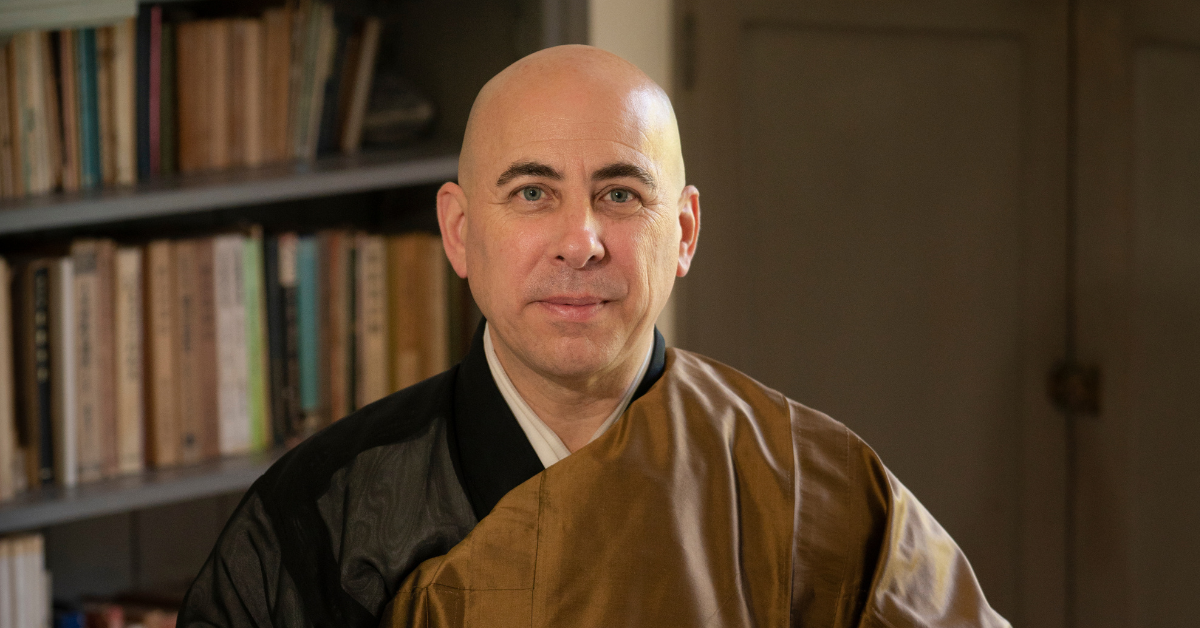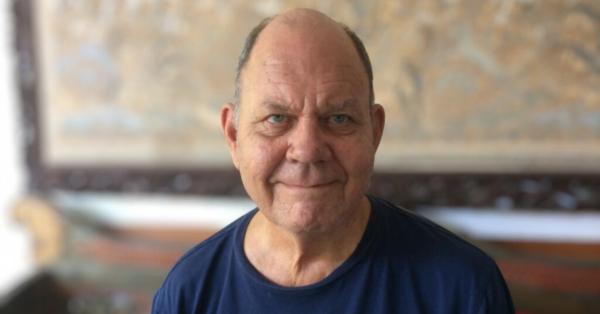
By Abbot Tenzen David Zimmerman
Over the last several days, as election results have become known, we’ve witnessed a continuous stream of reactions and commentary—both celebratory and despairing—about what it all means, including the implications for us, our loved ones, our country, and the world. Questions naturally arise about “how did we get here” and “what now.”
While it’s tempting to add my own opinions, my initial impulse has been to pause, find refuge in silence and stillness, and allow the direct experience of “what is” to simply be acknowledged without judgment. This helps me quiet the reactive mind and reconnect to a more fundamental truth—one beyond words, emotions, and any attempt to make sense of things.
And yet, many who are distressed by the election results have asked me to speak as a spiritual leader in our sangha. While I have no desire to prescribe how you should feel, think, or act, I offer this brief dharma reflection in hopes it might encourage you in your practice, regardless of your feelings about the outcome.
According to Buddhist teachings on impermanence and emptiness, you and I and all phenomena are interrelated and interdependently co-arisen. Myriad causes and conditions throughout all time and space have come together to give rise to this particular moment and situation. Everything is constantly changing; nothing remains stable or fixed from one moment to the next. The source and unfolding of this is unfathomable, and little is actually within our control except how we choose to relate to our experience. Denying or resisting these truths only creates suffering.
How each of us views and responds to this moment depends on the beliefs, values, preferences, and perceptions we hold to be true and fundamental, as well as our particular intersectionality, karmic conditioning, and life experiences. The Dharma teaches the importance of striving to understand and be accountable for our views, ethics, and actions, and the ripples of impact they inevitably have. Our thoughts and the individual and collective choices we make and the actions we take create the world we live in, for better or for worse. Conflict often arises when we disagree with others’ views and choices that seem to undermine our sense of how the world should be, especially regarding our personal safety, prosperity, and freedom.
Dharma practice also requires of us a willingness to hold our views and preferences with a certain amount of spaciousness, to allow them to be exposed and transformed and let go of to make room for new understandings, new possibilities, and new beginnings. Whenever there’s an array of opinions about a particular situation— whether declaring it good or bad, beneficial or harmful—I am reminded of Suzuki Roshi’s teaching of “not always so.” This is where genuine inquiry, open conversation, and meaningful change can begin.
Shortly after the 2016 election, SFZC’s leadership shared Suzuki Roshi’s words that feel equally relevant today: “So even if the sun were to rise from the west, the Bodhisattva has only one way.” What is that Way? It is the way of liberation, of waking up to Reality and our true nature and doing our best to live from a place of love, integrity, mutual regard, and harmony for the benefit of all beings.
Whether they find themselves navigating times of prosperity or times of darkness, a bodhisattva’s principle aspiration and activity to free all beings from suffering never wavers. Even if the world turns upside down and inside out, a bodhisattva vows to engage all circumstances and beings—including those who may wish us harm—with as much compassion, skill, and equanimity as they can muster, fortified by their vows and the paramitas or virtues of generosity, ethics, patience, vigor, concentration, and wisdom.
This doesn’t mean we shouldn’t act to address harm or improve conditions so all may flourish. It’s essential that we do. Many of us are deeply concerned about the impact the election results will have on those who already experience marginalization and mistreatment in our society, including women, people of color, the LGBTQ community, and immigrants. We must ask ourselves how we’re working to alleviate the suffering of all beings, regardless of their identities and social status, religious and political affiliations, or other differences.
We can do this knowing that true happiness and liberation don’t depend on external conditions. Instead, we can place our trust in our fundamental nature—our Buddha Nature—and in the innate capacity to know and transform our minds and character, healing them from the poisons of greed, hatred, and delusion. Electing to do this is perhaps the most powerful choice we can make.
As the election results unfold in the days, months, and years ahead, let us practice wholeheartedly with whatever circumstances arise, engaging in ways of being that foster mutual respect, connectivity, and well-being. This includes listening deeply to others to better understand what motivates them (their hopes, fears, needs) and how we can be of genuine support. May we also remember to devote time to zazen, mindfulness, and self-care. Finally, may we act at all times with kindness and a deep recognition of our shared being.
I’m deeply grateful for practice, and that there is no end to practice.











